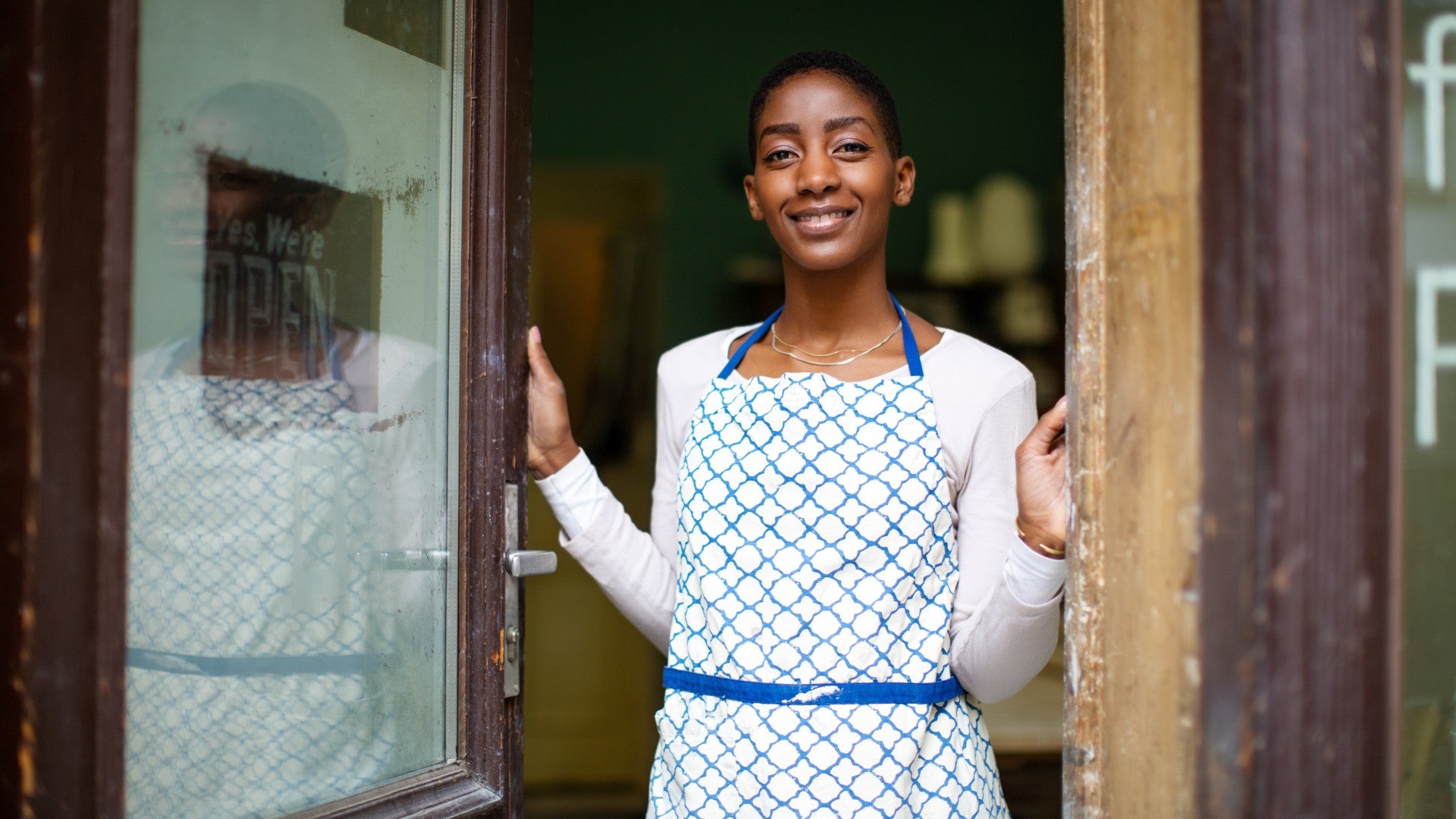
If Blackout Tuesday and the recent barrage of Black-owned beauty brand lists did nothing else, they shined a light on the plethora of businesses that were otherwise unknown outside of the Black community. More people became aware of the vast number of wonderful small Black-owned beauty brands that exist but often have niche followings and modest profits because of a lack of resources.
As a result, large beauty conglomerates, Fortune 500 corporations, and capital-robust beauty brands launched initiatives to support these smaller Black-owned beauty companies.
But it begs the question: What does long-term support actually look like?
We know that funding can go a long way for a small company, but that’s only part of the solution. ESSENCE sat down (figuratively) with three Black beauty business-owners to find out what they think companies should do in order for their support to have long lasting effects.
Makeba Guilan Lloyd, who owns Butter By Keba, a skincare and fragrance brand based out of Harlem, New York has been operating for nearly 12 years. Though she’s seen her business grow recently with the offering of sanitizers and other self-care targeted products, she also feels like a variety of support initiatives could make a huge difference for an emerging brand like hers.
“Creative capital is the most valuable commodity in the world,” she says. “And small business owners who build from the ground up using their own creative intelligence are what fuel this economy, especially during times like these. Black women lead the charge in that arena so why wouldn’t institutions not invest in us, heavily and repeatedly?”
“There are Black woman-owned brands out here using their social media followings to make millions,” she continues. “And many are doing it with no institutional funding. Can you imagine what would be possible if more of us had ongoing access to capital?”
She also thinks that corporate America leaves Black businesses out of the necessary how-tos for achieving and maintaining success. “If you want to help us, share the knowledge and tell us how to play the game,” she says.
Lloyd also saw what just a little bit of exposure on social and traditional media can do for a brand like hers and says that if companies want to support Black beauty brands, that’s a key part of it. She’s hoping that what we saw happen on Blackout Tuesday, where small Black-owned businesses were the focus on Instagram, Facebook and Twitter, can continue.
The final step, she says, is offering consumer data so that small businesses can better understand their costumers and engage with them in a way that directly and positively impacts the companies’ growth.
“Online commerce will only continue to grow. Knowing how to effectively communicate with your audience and customers is an evolving process that doesn’t happen overnight,” she explains. “Corporations spend big money to access consumer data for that very reason, something small businesses may not have access to when they are first starting out.”
Lash pioneer Dionne Phillips agrees. As an entrepreneur that’s also a service provider, her business has been greatly affected by the pandemic. She had to temporarily shut down D’Lashes, her lash spa in Beverly Hills, due to quarantine, causing her artists to be out of work.
Though she’s still able to provide lash kits for her clients, and she hosts virtual sessions via FaceTime, Google Hangouts and Zoom, Phillips says conglomerates and larger companies can provide more resources to smaller Black-owned beauty businesses. She also believes that committing to initiatives such as the 15% Pledge are necessary to enact long-lasting changes.
I would love to see a boot camp designed to help scale a small operation like mine — a program that integrated all of the key components like marketing, production, distribution and accounting, with funding in between.
– Makeba Guilan Lloyd, Butter by Keba
“We need to be inclusive throughout the stores for Black beauty brands,” she tells ESSENCE over email. “Stores and buyers need to be more inclusive and understand how to order culturally for retail. We shouldn’t just have one shelf, down below at the end of an aisle behind other products.”
A recent initiative launched by BROWN GIRL Jane and SheaMoisture, expanding the #BrownGirlSwap pledge, inspires consumers to replace five of their go-to products with products from Black women-owned brands. Over time, programs like this will help execute Phillips’ vision by creating a need for those products, forcing retailers to make space for them on their shelves. And she says adding education elevates these programs.
“Small Black-owned businesses can benefit from education on scaling their businesses,” Phillips continues. “Of course, amplification on social media, funding, and education on how to get into retailers is super helpful and needed. However, if these small Black owned-businesses are not able to or are not knowledgeable on the steps needed to scale their business, they won’t be able to take to advantage of initiatives like the 15% Pledge and #BrownGirlSwap.”
MiMi Johnson has personally seen the benefits of varied support. After quarantine forced her to permanently close the doors of The Glamatory, her beauty boutique and brand in Atlanta, she felt defeated. Johnson says she felt like she had failed, so she kept the closure secret for months while she continued to run the online business selling makeup and other beauty goods.
“I took it personal, for a long time,” she said over the phone. Even though this is a pandemic, it’s still hard to let go of something that you’ve built for over five years, and put your heart and soul into it, and to see it crumble.”
But when publications began to highlight Black-owned beauty brands following the death of Breonna Taylor, George Floyd, and many others, she started to see an uptick in her online sales. She’s both grateful for the spotlight and dismayed by what sparked it. Johnson thinks that there are several ways to support beauty brand owners that look like her, that can have longer lasting reach than a one-time infusion of cash.
“I feel like more of the venture capitalist firms and investors need to be on board. Black women are getting less than 10 percent of the venture capital deals. We’re not getting the funding,” she says.

The reality is, Black founders receive less than one percent of venture capital funding. We will never forget the famous Shark Tank episode where The Lip Bar founder Melissa Butler was told by Kevin O’Leary that there was a zero percent chance that she had an actual business on her hands (he also called her a cockroach and said that she makes clown makeup). In Johnson’s eyes, not being able to secure that type of funding is rooted in a lack of human resources and connections for Black entrepreneurs.
“We’re not getting in the rooms,” she says. “I want to know what makes someone invest in our businesses because there’s a disconnect somewhere. I know a lot of businesses that have great models, they just don’t [get] the funding. So having that mentorship, someone that can bring you into the rooms, someone that can bring you into those circles, that’s a whole other level.”
While she’s working on creating those relationships, Johnson is seeing another side of what connections can do through her partnership with Influence In Color. The non-profit leg of the management agency Image Is Everything is contributing more than $700,000 worth of influencer marketing advertisement to help rebuild her empire.
Along with introducing her brand to their followers, the influencers, which include Jessica Pettway, Tiffany Renee, KaSahara Mendez, and others, are forgoing their commission, donating those affiliate-earned proceeds to Color of Change, an organization that stands for racial justice and civil rights advocacy. Johnson says she’s appreciative and humbled by the aid.
“When you really say that you’re trying to support someone, it doesn’t always have to be money,” she finishes. “I think if you are creating some of these programs, it’s not just throwing money into a business, but it’s more of what else you can do. Is there education behind it? Can you pair them up with somebody for services? I think those extra things help. Because you can give a business the money and they still fail because they don’t know what to do [with it].”